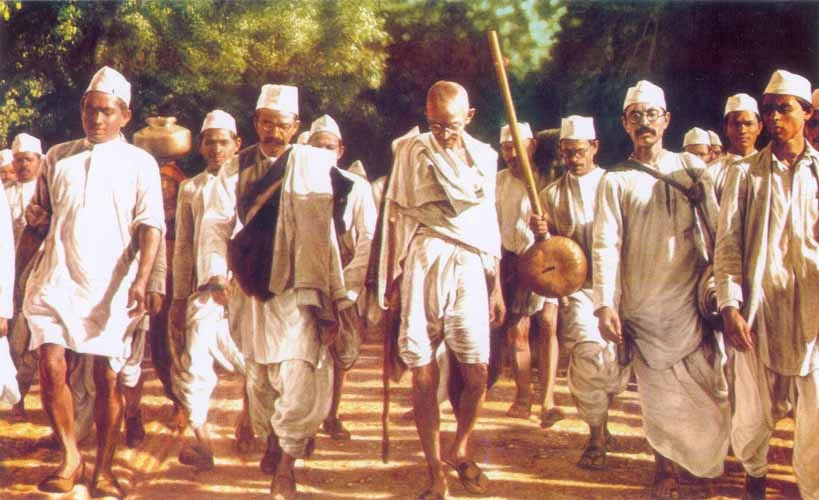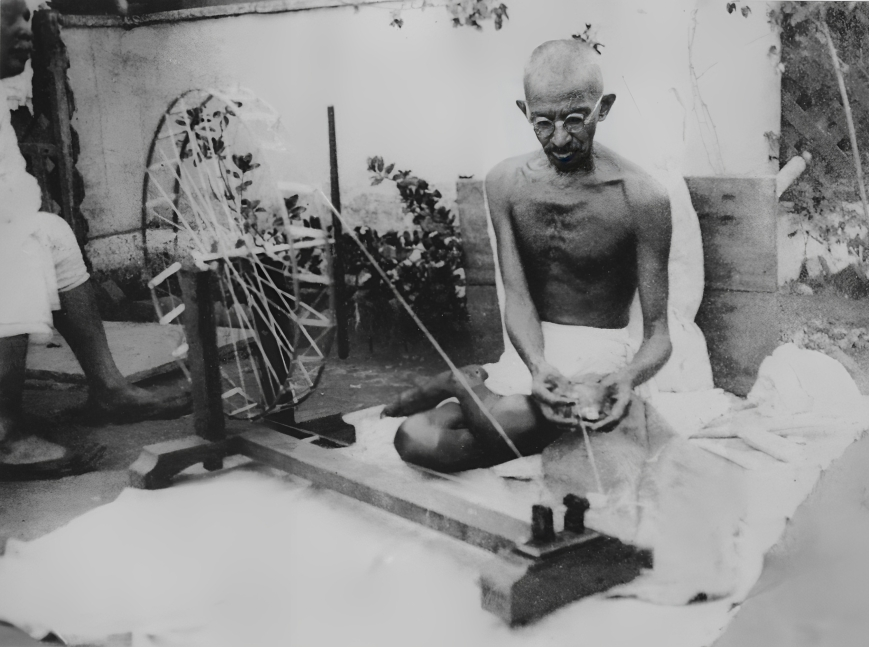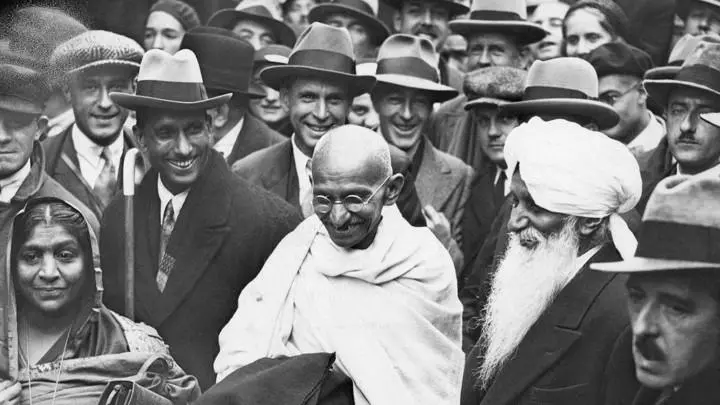Mahatma Gandhi, also known as Mohandas Karamchand Gandhi, was a prominent leader in India’s struggle for independence from British rule.
His nonviolent approach and unwavering commitment to justice have made him an inspiration to millions around the world. This article explores the life, legacy, and key teachings of Mahatma Gandhi, shedding light on his immense contributions to India’s freedom movement. In addition to his well-known achievements, there are some interesting facts about Gandhi that are not widely known. Let’s dive into these lesser-known aspects of his life.
Who is Mohandas Karamchand Gandhi?
Born on October 2, 1869, in Porbandar, Gujarat, Mohandas Karamchand Gandhi was raised in a middle-class family deeply rooted in Indian traditions. His upbringing instilled in him a strong sense of morality and ethical values.
At the age of 13, Gandhi was married to Kasturba Makhanji, who was of the same age. However, it is lesser known that later in life, he became a strong advocate against child marriage and actively worked towards eradicating this practice.
Gandhi’s Early Career as a Lawyer in South Africa: Before his return to India, Gandhi spent 21 years in South Africa, where he worked as a lawyer. During his time there, he faced racial discrimination and became involved in civil rights activism, laying the foundation for his future fight against injustice.

The Salt March and Civil Disobedience
One of the most iconic moments in Gandhi’s journey was the Salt March in 1930. It was a symbolic act of defiance against the British-imposed salt tax. Gandhi led a group of followers on a 240-mile journey to the coastal town of Dandi, where they collected salt from the seawater, challenging the monopoly held by the British government. This act of civil disobedience captured the attention of the world and marked a turning point in the struggle for Indian independence.
Empowering the Masses
Gandhi’s leadership style was characterized by his unwavering faith in the power of the masses. He believed in empowering every individual, regardless of caste, class, or gender, to actively participate in the struggle for freedom. Gandhi’s efforts extended beyond politics; he emphasized the importance of self-sufficiency, advocated for the rights of the marginalized, and worked tirelessly to eradicate social evils such as untouchability and gender inequality.
Unique Approaches and Practices
1. Charkha (Spinning Wheel): Mahatma Gandhi believed in self-reliance and the promotion of village industries. He popularized the use of the charkha, a simple spinning wheel, as a symbol of economic independence. By spinning his own cloth, he encouraged others to do the same, emphasizing the importance of self-sufficiency and reducing dependence on imported goods.

2. Gandhi’s Goat Milk Diet: Gandhi followed a strict vegetarian diet and experimented with various dietary practices throughout his life. One notable experiment was his goat milk diet, which he adopted for a period of time to address his health concerns. This unique dietary choice highlighted his commitment to exploring alternative lifestyles for personal and environmental well-being.
Quirks and Personal Habits of Mahatma Gandhi
1. Gandhi’s Walking Stick Collection: Gandhi had an extensive collection of walking sticks, each with its own story and significance. He would often carry a walking stick during his travels, and many of these sticks were gifts from his well-wishers and followers.
2. Gandhi’s Love for Playing the Harmonium: Gandhi had a fondness for music and enjoyed playing the harmonium, a keyboard instrument. He found solace in music and believed in its power to uplift the soul and promote inner harmony.
Legacy and Worldwide Influence
1. Gandhi’s Nobel Peace Prize Nomination: Despite his profound impact on the world and his advocacy for peace, Gandhi never received the Nobel Peace Prize. However, he was nominated for the prestigious award five times between 1937 and 1948, highlighting the global recognition of his efforts.
2. The International Day of Nonviolence: In recognition of Gandhi’s philosophy and methods of nonviolence, the United Nations General Assembly declared his birthday, October 2nd, as the International Day of Nonviolence. This day serves as a reminder of Gandhi’s legacy and the ongoing importance of peaceful resistance in resolving conflicts.

Mahatma Gandhi’s life and teachings continue to inspire people worldwide. Alongside his well-known accomplishments, these lesser-known facts shed light on the multifaceted nature of his character. From his early dissent against child marriage to his unique practices and personal quirks, Gandhi’s life was marked by innovation and a commitment to living in harmony with oneself and others. His legacy as the Father of India’s Independence Movement extends beyond politics, serving as a testament to the power of personal conviction, nonviolence, and the pursuit of justice and equality.
Unforgettable Lessons from Mahatma Gandhi’s Journey
Lesson 1. The Power of Nonviolence
Mahatma Gandhi’s unwavering belief in the power of nonviolence as a means to achieve justice and social change is a timeless lesson we can embrace. In a world often filled with conflicts and divisions, Gandhi’s nonviolent approach teaches us that compassion, understanding, and dialogue can bridge the gap between opposing sides and bring about lasting transformation.
Lesson 2: Persistence and Perseverance
One of the most remarkable aspects of Mahatma Gandhi’s journey was his relentless persistence and unwavering determination. Despite facing numerous obstacles and setbacks, he remained committed to his vision of an independent India. This teaches us the importance of perseverance in the face of adversity and reminds us that change takes time and effort.
Lesson 3: The Power of Unity
Mahatma Gandhi believed in the strength of unity and the power of collective action. His ability to rally millions of Indians from diverse backgrounds in the fight against British rule showcases the impact that unity can have in achieving common goals. Today, this lesson encourages us to come together, overcome our differences, and work towards a more inclusive and harmonious society.
Lesson 4: Self-Reflection and Self-Improvement
Mahatma Gandhi’s personal journey was marked by self-reflection and a commitment to self-improvement. He believed that true change begins within oneself. Gandhi’s practice of introspection and his pursuit of truth and self-discipline serve as a reminder for us to reflect on our own actions, continually strive for personal growth, and become agents of positive change.
Lesson 5: The Importance of Simplicity and Minimalism
Throughout his life, Mahatma Gandhi embraced simplicity and minimalism. He lived a modest lifestyle and encouraged others to do the same. This lesson reminds us of the importance of reducing our dependence on material possessions and finding fulfilment in the simple joys of life. Gandhi’s teachings on sustainable living and responsible consumption are especially relevant in today’s world, where environmental consciousness is crucial.
FAQs about Mahatma Gandhi
Q1: What were some of Mahatma Gandhi’s unique approaches to promoting self-reliance?
A: Gandhi popularized the use of the charkha (spinning wheel), which symbolized economic independence and self-sufficiency. He also advocated for the promotion of village industries and encouraged individuals to engage in activities that reduced dependence on imported goods.
Q2: What were some of Gandhi’s personal habits and quirks?
A: Gandhi had an extensive collection of walking sticks, which were often gifts from his followers. He also enjoyed playing the harmonium, a keyboard instrument and believed in the power of music to promote inner harmony.
Q3: Was Mahatma Gandhi ever nominated for the Nobel Peace Prize?
A: Yes, Mahatma Gandhi was nominated for the Nobel Peace Prize five times between 1937 and 1948, highlighting the global recognition of his efforts. However, he never received the award.
For information about other famous personalities, please visit this page.
